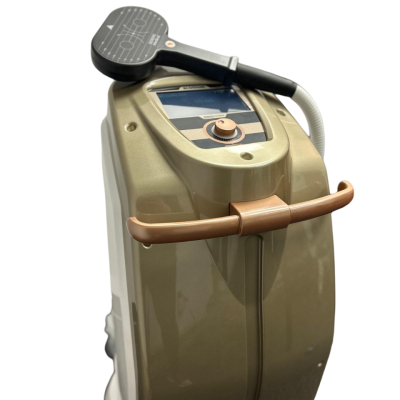Transcranial Magnetic Stimulation(TMS) for Treatment-Resistant Depression: A Revolutionary Approach
Our Approach to TMS at PsychTMS
At PsychTMS, we integrate TMS therapy into a personalized treatment plan that supports long-term recovery and mental wellness. Our TMS clinicians are trained in the latest protocols and use state-of-the-art equipment to deliver evidence-based care.
We begin with a comprehensive evaluation to determine whether TMS is appropriate for your condition and tailor your treatment accordingly. Throughout the process, we monitor your progress closely and adjust the protocol to ensure the best possible outcome.

What Is TMS Therapy?
Transcranial Magnetic Stimulation (TMS) is a non-invasive, FDA-approved treatment that uses magnetic pulses to stimulate specific areas of the brain. It is primarily used in psychiatry and neurology to treat depression, anxiety, obsessive-compulsive disorder (OCD), PTSD, and certain neurological conditions such as migraine and chronic pain.
Unlike medications that circulate throughout the entire body, TMS targets specific neural circuits involved in mood regulation and cognitive function, offering a precise and side-effect-free alternative for patients who may not respond to traditional treatments.
How TMS Works
TMS delivers focused magnetic pulses through a coil placed on the scalp. These pulses generate tiny electrical currents in the brain, activating or modulating neurons in the prefrontal cortex and connected areas—regions that are often underactive in conditions like major depressive disorder (MDD).
A typical session lasts about 20–40 minutes, and patients remain awake and alert throughout the treatment. Most people undergo a series of sessions over several weeks for optimal results.
What to Expect During Treatment
Initial Consultation: Full psychiatric assessment and TMS eligibility screening
Mapping Session: Identify the optimal stimulation target in your brain
Treatment Course: Typically 5 sessions per week for 4–6 weeks
Maintenance Options: Available if needed to sustain results
Most patients start to notice improvements by week 2 or 3, with benefits continuing to build over time.
Conditions Treated with TMS
TMS has shown promising results in a wide range of psychiatric and neurological conditions:
Psychiatric Disorders:
Major Depressive Disorder (MDD) – especially treatment-resistant depression
Generalized Anxiety Disorder (GAD)
Obsessive-Compulsive Disorder (OCD)
Post-Traumatic Stress Disorder (PTSD)
Bipolar Depression (with caution and clinical discretion)
Neurologic Applications:
Chronic Migraine
Neuropathic Pain
Fibromyalgia
Post-Stroke Rehabilitation (experimental or off-label use)

Possible Side Effects of TMS
Safety and Side Effects
TMS is widely considered safe and well-tolerated. Common side effects are mild and include:
Scalp discomfort at the stimulation site
Headache
Temporary facial twitching during sessions
There is no memory loss, sedation, or systemic side effects commonly associated with medications.

Why Choose TMS?
✅ FDA-Approved for Depression and OCD
✅ Non-Invasive & Drug-Free
✅ Minimal to No Side Effects
✅ Outpatient Procedure – No Downtime
✅ Proven Efficacy in Treatment-Resistant Cases
TMS vs. Traditional Depression Treatments
TMS vs. Medication:
Unlike antidepressants, which can take weeks to work and often come with side effects, TMS provides a quicker onset of action without the risk of weight gain, sexual dysfunction, or emotional blunting. It also avoids the potential for dependency that some patients experience with medication.
TMS vs. ECT (Electroconvulsive Therapy):
While ECT is effective, it is invasive and typically requires anesthesia. TMS, on the other hand, is a much gentler option, offering a safer and more comfortable treatment experience without the need for sedation or recovery time.
Is TMS Right for You?
If you’ve been struggling with depression, anxiety, PTSD, or other mental health challenges, and are seeking an alternative to medication, TMS could be the solution. At PsychTMS, we are here to guide you every step of the way, offering a compassionate, professional approach to mental heal
Get Started with TMS Today
If you’re ready to learn more about how Transcranial Magnetic Stimulation (TMS) can help improve your mental health, contact us today for a consultation. Our team is here to answer any questions you may have and help determine if TMS is the right treatment for you.
Our Values
The core principles that guide our performance
We at PsychTMS prioritize patient well-being through compassionate care, collaboration and excellence. The environment we create is diverse and provides extra care, raising the overall standard of health care.
Compassion
We prioritize compassion in our practice, understanding that health care goes beyond mere treatment. We believe that caring is the key to building strong relationships with patients.
Excellence
We are committed to providing superior service with a team of highly qualified medical professionals. Every aspect of our services is carried out to the highest standards to ensure patient satisfaction.
Patient Care
Our patients are placed at the center of our attention, with a highly individualized approach to care. We recognize that each patient has different needs, and we strive to meet their needs with care and empathy.